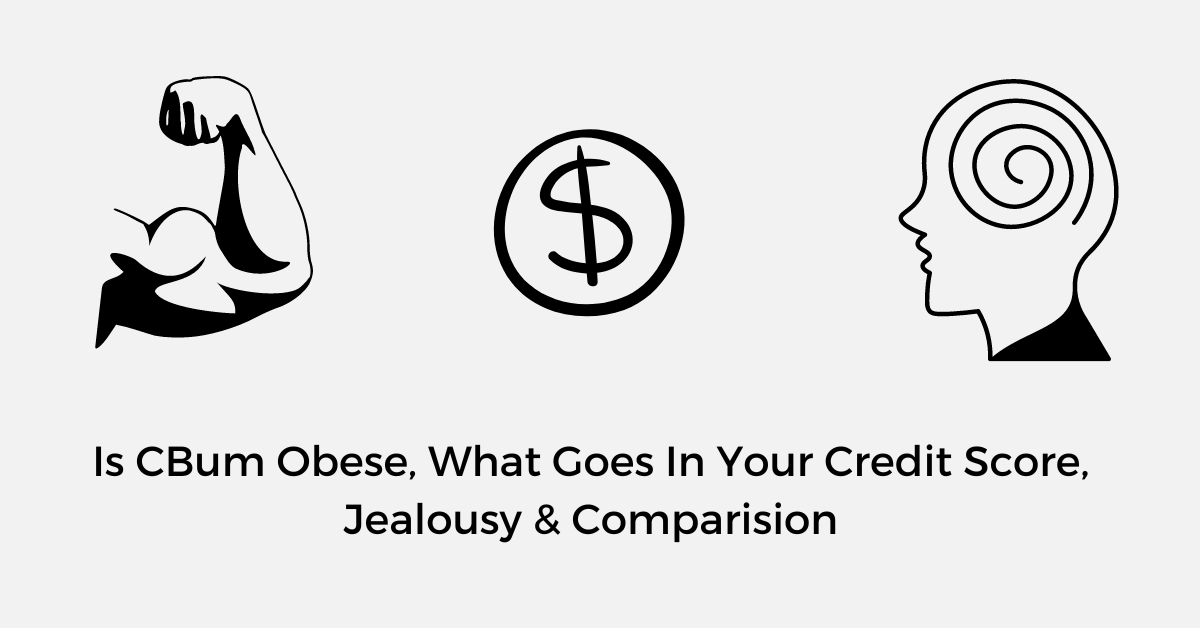Physical Health 💪
Is CBum obese?
In college, I weighed 60 kg at 180 cm tall.
Basically, I was a twig. I was barely tipping over the “underweight” tag on the BMI scale.
I wrote at length about my journey from skinny to muscular here.
The number on the BMI scale gave me a wake-up call that something needed to change, which led to a snowball effect on my nutrition and exercise habits.

BMI helped me, but the same BMI is giving me shocking a conclusion.
One day I randomly had the most obscure thought in my shower (duh!) of judging the physique of the most aesthetic man on the planet, CBum using BMI.
CBum is reining Mr. Olympia who is close to the legendary status as Arnold or Ronnie.
He is the epitome of what a human physique can possibly achieve (with steroids, obviously!)
But is that healthy?
BMI says no!
At his peak competition physique of 230 lb (104 kg) weight and 1.85 m height, he is definitely obese (BMI = 30.4). Off-season at 264 lb (120 kg), it only gets worse (BMI = 35.1)
But is he?
BMI indeed is a great health indicator which acts as a screening tool and starting point for healthcare professionals to discuss potential lifestyle changes with patients.
But that’s where we draw the line.
It is just a “starting point” which gives the whole picture.
But, it does not take into account factors like muscle mass, bone density, and distribution of body fat.
It only gives a general picture of the “average” population.
Averages give us a rough idea of where data tends to cluster in a group, but they might not be exactly right for each individual piece of data.
They work better when looking at a whole group rather than individual cases.
In this case, on “average” a person with a 30.4 BMI will be visibly obese.
But when we try to superimpose our conclusion on someone like CBum, we couldn’t be more wrong.
This gives me one lesson – when talking about health or rather anything, use data and studies to gain directional sense. But never consider them the absolute truth for you.
Case in point – consuming 1 gm of protein per lb of body weight is common for athletes for muscular growth. But high protein intake also affects your kidney.
Both studies are directionally right.
Will increased protein intake help in muscle growth? – Yes
Will increased protein impact my kidneys? – Also, yes
Using this information as my starting point, I will then take specific actions based on how my body reacts to the protein intake and not let contradicting studies confuse me.
TL;DR – Use such tools and studies for general understanding, but only act on what’s best for specific you because you are unique and definitely not “average”!
Financial Health 💰
What goes into your credit score?
You will have a lot of financial goals you want to achieve in life. There will be a lot of things and luxuries that you want to buy.
No matter how much you invest, there may be times when you will have no other option but to take a loan to finance your purchase.
That’s how most middle-class family finances work. Loans are an integral part of our finances.
In fact, loans become one of the biggest reasons how people are able to uplift themselves out of their financial woes.
Buying your own house or going for a master’s abroad are significant financial decisions that have a life-changing impact.
Thus, taking loans becomes a necessity and understanding how credit scores work is unavoidable.
While we all understand that a credit score is a report card for your financial life, not everybody knows what goes behind building this score.

The diagram above simplifies the components contributing to your credit score.
Here are key considerations:
- Payment History: Timely payments yield rewards.
- Credit Utilization: Keeping credit usage below 50% of the limit is pivotal.
- Length of Credit History: Longer credit history aids decision-making.
- Credit Mix: A diverse portfolio of loans (personal, credit card, vehicle, education, home) is advantageous.
- New Credit: Frequent credit inquiries can negatively impact your score.
Being someone who doesn’t even own a single credit card, they must at least keep in mind that you must get one as soon as possible (3) and not make apply for too many credit cards at once (5) to avoid getting your credit score penalized.
Rest assured, if you have been a good student (high credit score), any institution (bank) will be ready to give you admission (loan with the lowest rates).
Mental Health 🧠
Jealousy & Comparision
I have been quite candid about my struggle with comparison and jealousy.
Growing up in a competitive environment, it fosters the development of your best self, yet can also lead to sulking when things don’t go your way.
Excuse me for stating the obvious: jealousy is a wretched emotional state to be in.
You find yourself despising those who possess what you aspire for in life.
This sentiment reached its peak when my “friend and roommate” stole my crush, a story recounted here.
After considerable contemplation, I managed to identify that this jealousy stemmed from my own lack of belief in my capacity to achieve what others did.
This self-sabotaging perception not only limited my potential but also cast a shadow over my daily life.
Comparing myself to others yields no benefits, a truth that I have come to understand.
As a result, I have identified two methods through which I am able to embrace this sentiment:
- Cultivating gratitude for my own accomplishments, instead of fixating on the achievements of others.
- Looking UP to individuals who have the qualities I desire and striving to emulate them.
Both of these approaches require a shift in mindset that is imperative for navigating a less burdensome existence.
Remarkably, this strategy works about 95% of the time.
The remaining 5% still entails occasional surrender to the whimsical nature of the mind.
In those moments, the only course of action left is to experience these emotions and allow them to flow.
The reality is that being human comes with a price: bearing the weight of these negative emotions.
You can never fully avoid them. And when you can’t, just acknowledge them and let it flow.
Ultimately, if you are content, you will naturally revert to your default emotional state.
Those infrequent 5% instances may still be turbulent, but as they say, it is what it is.



Leave a Reply